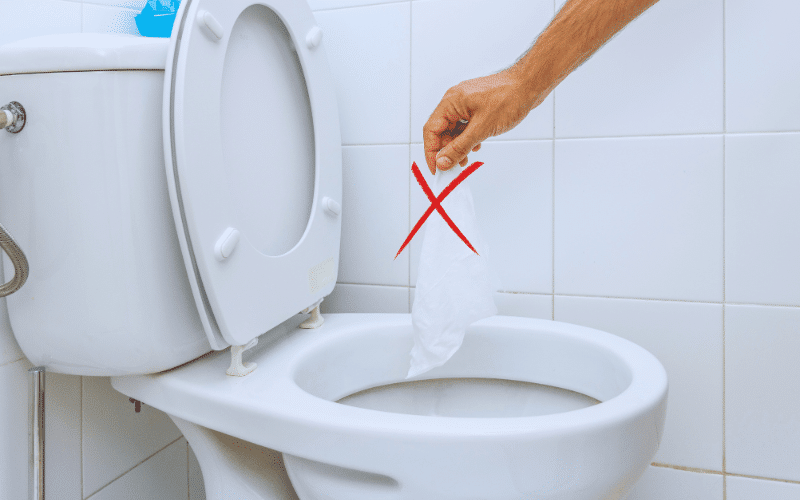
A blocked drain can often be an unnecessary burden, especially if you haven’t taken the correct preventative measures to avoid it in the first place.
Although unblocking drains is one of our specialities, we want to ensure that our customers can look after their drains accordingly so they don’t have continuous issues.
Here’s a list of 5 things you should never put down your drains!
Wipes
A major cause of drain blockages is wet wipes, including baby wipes and make-up wipes. Although they are disposable, they should not be flushed down the toilet as they do not disintegrate in the way toilet paper does. Even if they are flushed one at a time, they can end up accumulating and causing a blockage. We will usually find these built up in an outside drain.
The wipes can also combine with fat and grease and other dirt trapped in the pipes, creating an iceberg-like formation called a ‘fatberg’.
Our advice at London Drains Direct Ltd, is to dispose of all wipes in the general waste bin.
Grease, oils and fat
Naturally, grease, oil and fat will pass through your drains at some point – as when washing up and cleaning it’s impossible to be meticulous. However, it’s important to avoid putting any oils or fats down your sink or toilet, as these can build up quickly.
Although fats and oils are often liquids, in cold temperatures they can solidify – causing blockages.
Cotton balls and sanitary waste
Cotton balls and sanitary waste products such as tampons and pads are made from a blend of plastic, cotton and Rayan – which doesn’t break down at all.
Cotton-based products should always be put in the bin – even if they’re “organic” or “bio-degradable”. Condoms should also not be flushed away, they should be disposed of in the waste bin.
Food waste
Throwing food waste, including vegetable peelings, tea leaves and coffee grinds, down the kitchen sink can cause waste build up in your pipework and may cause smelly and severe blockages. The obvious and practical solution would be to throw any leftover food waste into the bin. Tea leaves, vegetable peelings, egg shells and coffee grinds can all be composted.
Builders Debris
Anyone undertaking home renovations work can testify that builders dust, plaster residuals, and building rubble can easily enter the drainage system.
Allowing concrete or cement to build up in your drains can also result in a higher increase of drain blockages caused by solids, leading to your pipes becoming blocked up and could cause the drain to overflow. Always ensure that building debris is disposed of correctly and not poured into your drains.
If you believe you have a blocked drain and you’re experiencing some warning signs of a blocked drain. Then get in touch with our team of engineers for a free consultation and call out to deal with your blocked drain.


